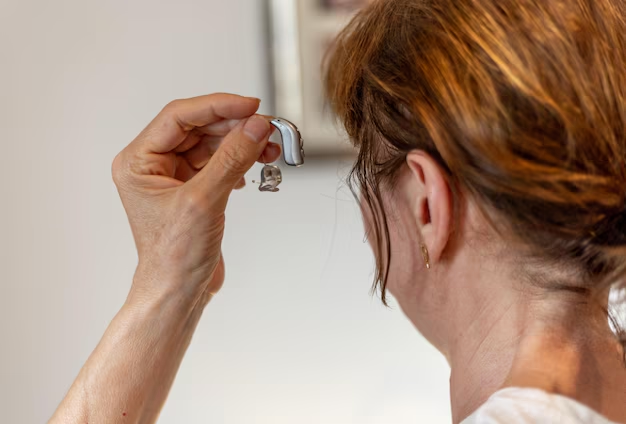Finding the Best Solutions for Those Hard of Hearing: Your Ultimate Guide
Living with hearing loss can dramatically change how you interact with the world. From missed conversations to social isolation, the challenges are real. But the good news is, solutions for those hard of hearing are more varied and accessible than ever before. This guide will explore a range of options to help improve quality of life for individuals with hearing impairments.
Understanding Hearing Loss
What is Hearing Loss?
Hearing loss occurs when there’s a problem with one or more parts of the ear or the nerves that send sound information from the ear to the brain. It can range from mild, moderate, and severe to profound, and it affects people of all ages. Most commonly, hearing loss is categorized into three types: conductive, sensorineural, and mixed.
Causes and Prevalence
Hearing loss can be due to numerous factors including aging, exposure to loud noises, infections, ototoxic medications, and genetic predisposition. While it's common in older adults, it can affect anyone at any stage of life.
Solutions for Hearing Loss
Identifying the best solution for someone who is hard of hearing depends on the individual’s specific type of hearing loss, lifestyle, and personal preferences. The array of solutions available today can be grouped into three broad categories: hearing aids, assistive listening devices, and surgical options.
Hearing Aids: A Conventional Solution
Hearing aids are small electronic devices worn in or around the ear. They amplify sounds to make it easier for people with hearing loss to hear and communicate. There are several types of hearing aids, and choosing the right one is essential.
Types of Hearing Aids
Behind-the-Ear (BTE): These rest behind the ear and are connected to an earpiece, making them suitable for all ages and most types of hearing loss.
In-the-Ear (ITE): Fitting directly into the outer ear, these aids are more noticeable but easier to handle.
In-the-Canal (ITC) and Completely-in-Canal (CIC): These are custom-fitted to your ear canal, providing a discreet option but may be harder to adjust.
What to Consider
Consulting a Professional: A qualified audiologist is crucial in choosing the correct hearing aid, ensuring it meets your hearing needs and fits comfortably.
Lifestyle Needs: Consider your daily activities. If you're active, you might need aids that are water-resistant or designed to connect to other devices like smartphones or TVs.
Assistive Listening Devices: For Specific Situations
These devices help overcome hearing challenges in specific situations, such as speaking on the phone or watching TV.
Types of Assistive Listening Devices
FM Systems: These use radio signals to transmit sound from a microphone to a receiver directly into the ear. They are excellent for use in classrooms.
Infrared Systems: Commonly used in theaters, these convert sound into infrared light and transmit it wirelessly to receivers.
Induction Loop Systems: Produce an electromagnetic signal that is picked up by a hearing device set to ‘T’ mode, ideal for places like public auditoriums.
Practical Tip: Think about where you experience the most difficulty hearing. Could a device specifically for the phone or television significantly improve your interactions?
Surgical and Medical Interventions: Advanced Solutions
For some, medical or surgical interventions are the most effective. These options may be recommended when hearing loss is more severe or when other solutions aren't suitable.
Cochlear Implants
Cochlear implants bypass damaged portions of the ear and directly stimulate the auditory nerve, providing a sense of sound to individuals with profound hearing loss or deafness.
Bone-Anchored Hearing Systems
These devices work by bypassing the traditional path of sound and directly stimulating the cochlea via bone conduction, suitable for those with conductive hearing loss.
Living Your Best Life with Hearing Loss
Choosing the right hearing solution is just one step on the journey. Here are some additional strategies to enhance your experience.
Communication Strategies
- Face the Person: Ensure clear visibility of your facial expressions and lip movements.
- Reduce Background Noise: Find quieter spots if possible.
- Use Technology: Many apps provide text during calls or facetime.
Consumer Tips for Choosing Hearing Solutions 📌
- Trial Periods: Always inquire about trial periods, allowing you to test comfort and effectiveness.
- Maintenance: Consider the ongoing maintenance and battery requirements of devices.
- Insurance: Check if your insurance covers expenses for hearing aids or devices.
Demystifying Common Myths
Myth 1: Hearing Aids Restore Hearing Fully
Fact: While they improve hearing, aids don’t restore it entirely. They are tools to assist in better hearing experiences, not cure hearing loss.
Myth 2: Only Old People Wear Hearing Aids
Fact: People of all ages wear hearing aids. Early intervention can improve outcomes greatly.
Final Thoughts
Living with hearing loss presents unique challenges, but with today's advanced technology and solutions, there are more ways than ever to improve hearing and, with it, quality of life. A blend of the right technology, communication strategies, and professional support can empower those hard of hearing to live life fully engaged and connected with the world around them.
Quick Takeaway Summary 🎯
- Consult an Audiologist: For professional assessment and personalized recommendations.
- Explore All Options: From hearing aids to assistive devices and surgical interventions.
- Consider Your Lifestyle: Match your hearing solution to your daily activities and settings.
- Stay Informed: Updates and advancements in hearing technologies occur frequently.
- Advocate for Yourself: Understand what works best for you and communicate your needs clearly.
Empowering yourself with the right solutions can lead to significant improvements and help maintain an active, fulfilling, and socially engaging life.

Related Topics
- a Plus Hearing Aid Centers
- a Real Pain Showtimes Near Centerville
- Are Airpods Bad For Your Ears
- Are Apple Second Generation Airpods Hearing Aids
- Are Audien Hearing Aids Just Amplifiers
- Are Costco Hearing Aids As Good As Others
- Are Costco Hearing Aids Good
- Are Hearing Aid Domes Interchangeable
- Are Hearing Aid Subscriptions Worth It
- Are Hearing Aid Tax Deductible
